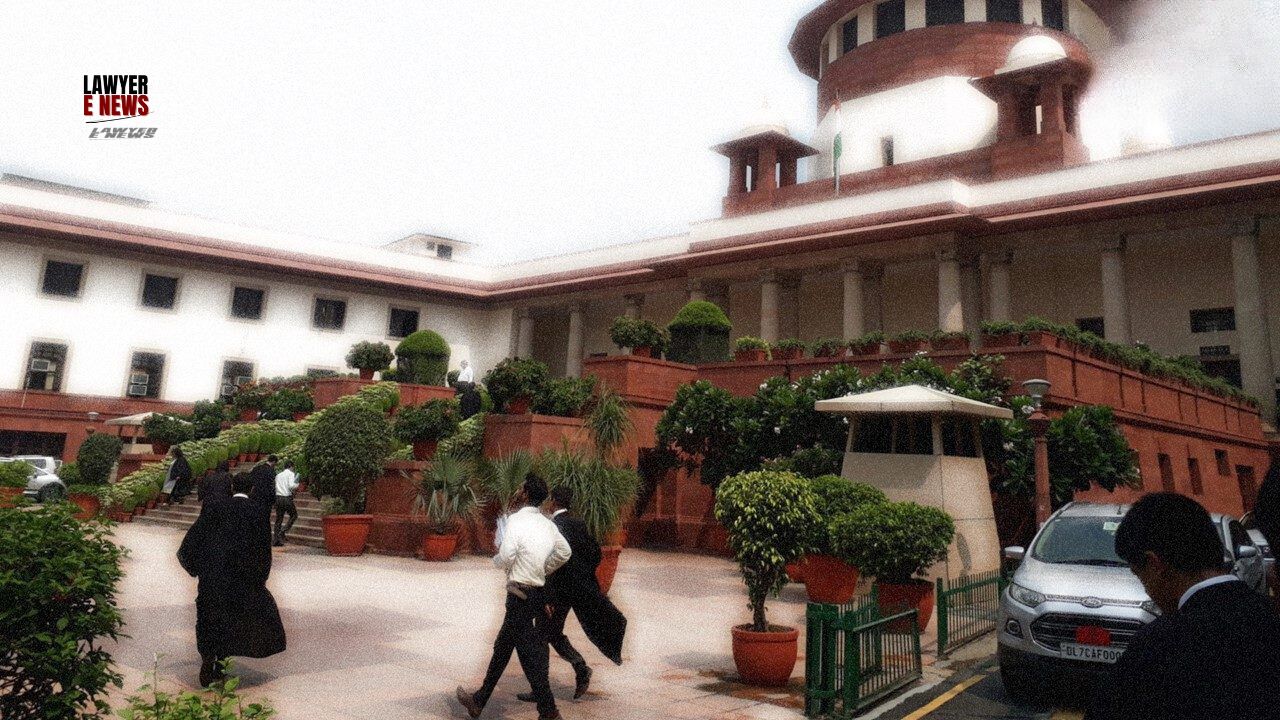-
by Admin
16 February 2026 1:47 PM



“Consent given after active and reasoned deliberation by a mature adult cannot be later twisted into rape simply because the promise of marriage wasn’t fulfilled.” - In a significant judgment delivered on April 7, 2025, the Supreme Court of India quashed criminal proceedings against Jaspal Singh Kaural, an NRI, accused of rape and criminal intimidation after his long-standing romantic relationship with a woman ended without marriage. The Court held that the relationship was clearly consensual, sustained over several years, and that no offence under Sections 376 or 506 IPC was made out.
A bench of Justices B.V. Nagarathna and Satish Chandra Sharma, restoring the discharge order passed by the Sessions Court, ruled that: “The prosecutrix was in a relationship with the Appellant while being in a subsisting marriage, and even subsequently obtained a divorce to sustain the relationship. The prolonged period of sexual relations is sufficient to conclude that there was never an element of force or deceit.”
“She Consented With Full Knowledge – This Is Not a Case of Rape on False Promise of Marriage”
The FIR filed in 2021 alleged that the accused, who was known to the complainant since 2011, rekindled a relationship with her in 2016. He promised marriage after divorcing his wife, stayed with her for 25 days, bought a mangalsutra, and even assured her ex-husband that he would take care of her and her children. However, when he later refused to marry her, she filed the complaint.
But the Supreme Court found this narrative unfit for criminal prosecution.
“It is also hard to believe that the prosecutrix could have sustained a physical relationship for a prolonged period of five years while being in a subsisting marriage… Her conduct shows active and reasoned deliberation.”
The Court also pointed out that the complainant had obtained divorce in 2019 to continue her relationship with the Appellant — a move entirely voluntary and deliberate.
“There’s a Big Difference Between Breach of Promise and False Promise – Not Every Failed Relationship Is a Criminal Offence”
Relying on Naim Ahmed v. State (NCT of Delhi) and Pramod Suryabhan Pawar v. State of Maharashtra, the Court reaffirmed that:
“It would be a folly to treat every breach of promise to marry as a false promise and to prosecute a person for rape.”
“Consent of a woman must involve active and reasoned deliberation. If she engages in a sexual relationship with full awareness of the facts, it cannot later be labeled rape just because marriage did not occur.”
The Court emphasised that the prosecutrix was a mature woman, who consciously chose to be with the Appellant even knowing he was married. There was no inducement, deceit, or coercion, only a later fallout.
“Even the Promise to Marry Was Not Dishonest – Mangalsutra With Her Name Initials Was Proof of Intention”
The prosecution had alleged that the promise to marry was a lie from the start. But the Court disagreed, noting that the Appellant acted on the promise, went as far as purchasing a wedding ornament engraved with her initials, and cohabited with her.
“The Mangalsutra being prepared with the initials of the name of the complainant reflects his intention to marry. In the event of a fallout, that cannot retroactively convert the promise into deceit.”
Supreme Court Pulls Up High Court for Overreach, Says Revisional Jurisdiction Was Misapplied
The Delhi High Court had reversed the Sessions Court’s discharge order and directed that charges be framed under Sections 376 and 506 IPC. The Supreme Court found this to be an excessive exercise of revisional power.
“The High Court failed to appreciate that at the stage of discharge, a mini-trial is not permissible. The Trial Court’s findings were based on the material on record and should not have been interfered with.”
It ruled that there was no evidence of criminal intimidation or any threat of harm to the complainant’s children, rejecting those allegations as vague and unsupported.
“The prosecutrix made an informed, independent choice. What followed was a relationship — not rape.”
Accordingly, the Supreme Court allowed the appeal, set aside the High Court’s order dated January 3, 2024, and upheld the discharge order passed by the Sessions Court on June 8, 2023. It ordered the termination of all criminal proceedings arising out of FIR No. 281/2021 registered at PS Sagarpur, Delhi.
Date of decision : April 7, 2025
